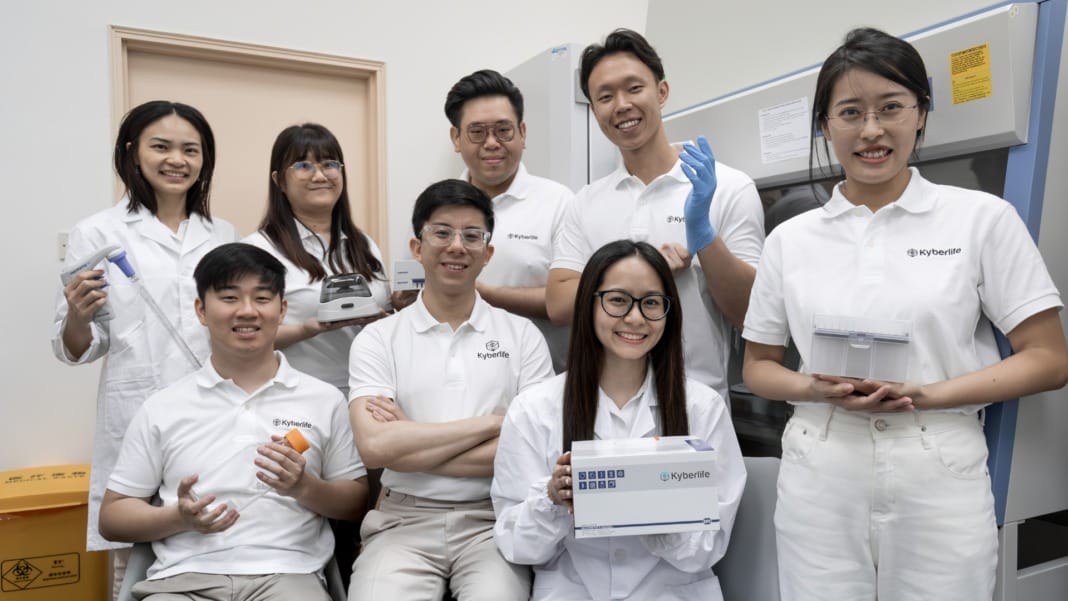Singapore-based healthtech startup Kyberlife has secured US$3 million in its latest investment round, led by 5I Ventures with support from East Ventures, A2D Ventures, and NUS Alumni Ventures (NAV). The funding will accelerate Kyberlife’s expansion across Southeast Asia and enhance its digital procurement solutions for the healthcare sector.
With the Asian medical market projected to contribute to one-third of global sales by 2025, the demand for streamlined procurement processes is growing. However, challenges such as supply chain disruptions and compliance regulations have made it increasingly complex for laboratories and healthcare institutions to acquire essential equipment. Kyberlife aims to simplify this process through its innovative digital marketplace, connecting global suppliers with Southeast Asian research and healthcare providers.
Revolutionising healthcare procurement
Kyberlife operates on a platform-as-a-service (PaaS) model, offering an extensive online marketplace for laboratory and life science equipment. The platform features 1.2 million products from 160 brands, serving as a one-stop shop for research institutions, universities, and healthcare providers. By digitising procurement workflows and reducing inefficiencies, Kyberlife has cut average procurement times by 40%.
Its technology seamlessly integrates with existing enterprise procurement systems and consumer workflows. The company has also incorporated AI-driven features and data analytics to offer personalised product recommendations, further enhancing the user experience.
“Our vision is to simplify the complex and lengthy process researchers face when sourcing laboratory equipment and supplies essential for R&D in the healthcare industry,” said Ryan James Lim, Co-Founder and CEO of Kyberlife. “We are grateful for the continued support and look forward to connecting more healthcare vendors with institutions to drive R&D efforts across Singapore and the wider Southeast Asia region.”
Expansion plans and future growth
Kyberlife plans to use the fresh investment to drive several key initiatives:
- Expanding into Indonesia – The company will onboard Indonesian vendors onto its platform, providing them with opportunities to expand their business beyond local borders.
- Strengthening connections between local institutions and global suppliers – Kyberlife aims to increase its supplier and customer network across Southeast Asia, particularly in Singapore, Indonesia, and Thailand. It also plans to introduce new product categories such as laboratory instruments and chemical reagents, enabling local organisations to enhance R&D efforts in clinical trials and pharmaceutical research.
- Investing in AI and emerging technologies – The company will further develop AI-driven features to refine its procurement process and improve supply chain efficiency.
Kyberlife has already attracted strong backing from industry leaders, including Maya Hari, former Global Vice President at Twitter, and Dr Jeremy Lim, CEO of AMiLi. The platform has also gained support from major global suppliers such as Merck, ZymoResearch, DKSH, Eppendorf, and Sartorius, while serving top institutions like National University of Singapore, Duke-NUS, Nanyang Technological University, and National Cancer Centre Singapore.
“At 5I Ventures, we invest in companies that disrupt industries and provide scalable solutions,” said Dieter Schlosser, Managing Partner at 5I Ventures. “Kyberlife’s innovative approach to procurement is a game-changer for the life sciences sector, and we are proud to back their vision.”
With its latest funding, Kyberlife is well-positioned to drive digital transformation in the healthcare and life sciences sectors across Southeast Asia. The company aims to expand its vendor portfolio tenfold within the next three years, offering a more efficient and accessible procurement experience for healthcare providers and researchers.





